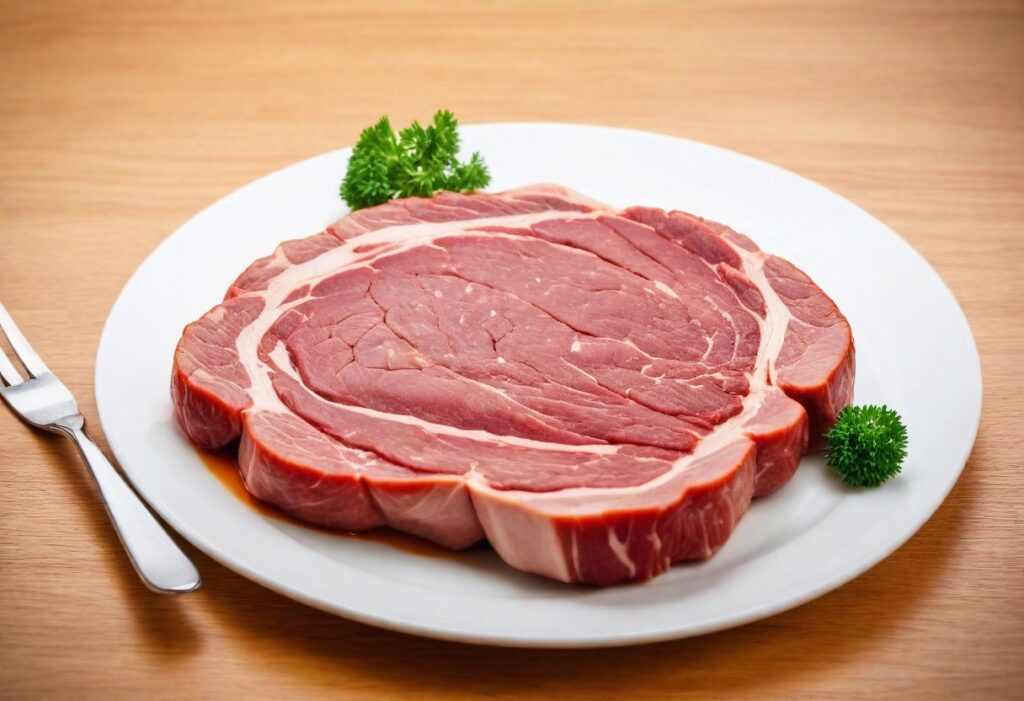Finding the best protein source for your diet is essential for muscle growth, weight management, and overall health.
When comparing lean meat to protein powder, it’s important to consider factors like nutritional content, convenience, and personal dietary needs.
This article explores the benefits and drawbacks of both protein sources, helping you make an informed decision.

Why is protein important?
Protein is a vital macronutrient needed for various bodily functions, including muscle repair, enzyme production, and hormone regulation.
It’s especially crucial for those engaged in regular physical activity, as it helps build and maintain muscle mass.
Nutritional content of lean meat
Lean meat, such as chicken, turkey, and lean cuts of beef, is a rich source of high-quality protein.
It also provides essential vitamins and minerals, including iron, zinc, and B vitamins.
These nutrients play a crucial role in energy production and overall health.
Key benefits of lean meat:
- high in complete proteins
- rich in essential vitamins and minerals
- supports muscle growth and repair
Nutritional content of protein powder
Protein powders, including whey, casein, and plant-based options, offer a convenient way to increase protein intake.
They are often fortified with additional nutrients and can be easily incorporated into various recipes.
Key benefits of protein powder:
- convenient and quick to prepare
- easily digestible
- variety of options for different dietary needs
Which is more convenient?
When it comes to convenience, protein powder often has the edge.
It can be quickly mixed into shakes, smoothies, or recipes, making it ideal for busy lifestyles.
On the other hand, lean meat requires cooking and preparation time but offers a whole food source of protein with additional nutrients.
Cost comparison
The cost of lean meat vs. protein powder can vary based on quality and brand.
Generally, protein powder may seem more expensive upfront, but it provides a cost-effective way to meet daily protein needs over time.
Lean meat, depending on the cut and type, can be more variable in cost but also provides additional nutritional benefits.
Digestibility and absorption
Protein powders, particularly whey and casein, are known for their high digestibility and absorption rates.
Lean meat is also easily digestible but may take longer for the body to break down compared to protein powder.
Environmental impact
Choosing between lean meat and protein powder can also depend on environmental considerations.
Plant-based protein powders typically have a lower environmental footprint compared to animal-based proteins.
Lean meats, particularly beef, have a higher environmental impact due to the resources required for animal farming.
Personal preferences and dietary needs
Ultimately, the best protein source depends on individual preferences and dietary requirements.
Some people may prefer the taste and texture of lean meat, while others may find protein powders more convenient and versatile.
Which is better for muscle growth?
Both lean meat and protein powder can support muscle growth effectively.
Lean meat provides a complete protein source with additional nutrients, while protein powders offer a concentrated form of protein that can be quickly absorbed by the body.
Frequently asked questions
Is it safe to consume protein powder daily?
Yes, it is generally safe to consume protein powder daily as long as it fits within your dietary needs and overall nutrition plan.
Can I use protein powder as a meal replacement?
Protein powder can be used as a meal replacement, especially when combined with other nutrients like fruits, vegetables, and healthy fats.
What are the best plant-based protein powders?
Some of the best plant-based protein powders include pea protein, hemp protein, and brown rice protein.